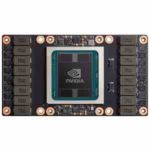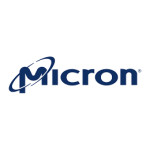In this special guest feature from Scientific Computing World, Laurence Horrocks-Barlow from OCF predicts that containerization, cloud, and GPU-based workloads are all going to dominate the HPC environment in 2020. “Over the last year, we’ve seen a strong shift towards the use of cloud in HPC, particularly in the case of storage. Many research institutions are working towards a ‘cloud first’ policy, looking for cost savings in using the cloud rather than expanding their data centres with overheads, such as cooling, data and cluster management and certification requirements.”
Considerations for Managing HPC Resources
In this special guest feature, Robert Roe from Scientific Computing World writes that companies faced with increasing complexity are developing new services and tools to help users manage their HPC resources. “The single biggest thing that people do is focus too much on the hardware, and forget about the rest of the stuff. The procurement process is driven by the compute system. It doesn’t necessarily take into account that you are going to need people and software to deliver value,” said Andrew Jones from NAG.
Is Ubiquitous Cloud Bursting on the Horizon for Universities?
In this special guest feature from Scientific Computing World, Mahesh Pancholi from OCF writes a growing number of universities are taking advantage of public cloud infrastructures that are widely available from large companies like Amazon, Google and Microsoft. “Public cloud providers are surveying the market and partnering with companies, like OCF, for their pedigree in providing solutions to the UK Research Computing community. In order to help Universities take advantage of their products by integrating them with the existing infrastructure such as HPC clusters.”
Simulation Driven Design at the Altair Technology Conference
In this special guest feature from Scientific Computing World, Robert Roe reports on developments in multiphysics simulation at the Global Altair Technology Conference. “This year’s event focused on sharing applications of simulation-driven innovation from technology leaders and industry executives from all over the world, including keynotes from Ferrari, Jaguar Land Rover and Zaha Hadid Architects.”
For HPC and Deep Learning, GPUs are here to stay
In this special guest feature from Scientific Computing World, David Yip, HPC and Storage Business Development at OCF, provides his take on the place of GPU technology in HPC. “Using GPUs in the HPC datacenter in place of CPUs can dramatically increase the power requirements needed, but if your computational performance goes through the roof, then I’d argue it’s a trade-off worth making.”
Survey: Training and Support #1 Concern for the HPC Community
Initial results of the Scientific Computing World (SCW) HPC readership survey have shown training and support for HPC resources are the number one concern for both those that operate and manage HPC facilities and researchers using HPC resources. “Several themes have emerged as a priority to both HPC managers and users/researchers. Respondents cite that training and support are essential parameters compared to performance, hardware or the availability of HPC resources.”
Reducing the Time to Science with Efficient Clouds
In this special guest feature from Scientific Computing World, Dr Bruno Silva from The Francis Crick Institute in London writes that new cloud technologies will make the cloud even more important to scientific computing. “The emergence of public cloud and the ability to cloud-burst is actually the real game-changer. Because of its ‘infinite’ amount of resources (effectively always under-utilized), it allows for a clear decoupling of time-to-science from efficiency. One can be somewhat less efficient in a controlled fashion (higher cost, slightly more waste) to minimize time-to-science when required (in burst, so to speak) by effectively growing the computing estate available beyond the fixed footprint of local infrastructure – this is often referred to as the hybrid cloud model. You get both the benefit of efficient infrastructure use, and the ability to go beyond that when strictly required.”
Tsinghua in China Makes $23 billion Bid for Micron
In what could be one of the biggest acquisitions of a US company by a Chinese firm, China’s state owned Tsinghua Unigroup has made an bid to acquire US semiconductor manufacturer Micron Technology for $23 billion.











